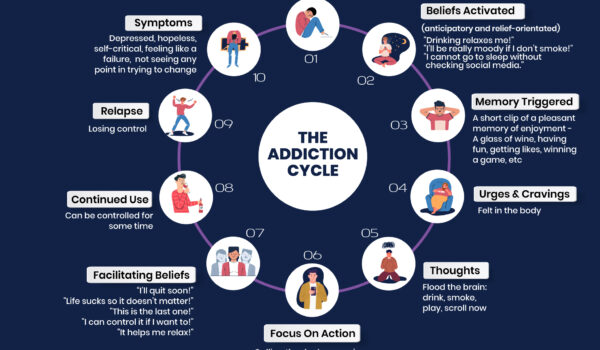CBT stands for Cognitive Behaviour (Psycho-) Therapy. Cognition is the mental action, or process of acquiring knowledge and understanding by incorporating one’s own thoughts, beliefs, and images. Pretty much everything that goes through your head is a cognition.
Latest NewsHow to Overcome Procrastination with CBT: Your Step-by-Step Guide to Taking Action

Using CBT to Overcome Procrastination: A Guide to Taking Action
Procrastination is a common challenge that affects many people, often leading to stress, reduced productivity, and feelings of guilt. It’s not merely about laziness or poor time management; procrastination is frequently linked to deeper emotional and cognitive factors, such as fear of failure, perfectionism, or avoidance of uncomfortable tasks. Cognitive Behavioural Therapy (CBT), a proven approach for addressing unhelpful thoughts and behaviours, can be highly effective in tackling procrastination.
Book a Consultation
Understanding Procrastination Through CBT
CBT posits that thoughts, feelings, and behaviours are interconnected. For procrastinators, the cycle often starts with negative or distorted thoughts about a task, such as “This is too hard,” “I’ll never do it perfectly,” or “I can always do it later.” These thoughts trigger avoidance behaviours, which may offer short-term relief but reinforce the habit of putting things off. Over time, this can lead to a vicious cycle of increased stress and diminished confidence.
Key CBT Techniques for Combating Procrastination
- Cognitive Restructuring
One of the core principles of CBT is identifying and challenging unhelpful thoughts. For example, if you catch yourself thinking, “I’ll never finish this report,” you can reframe it to, “I may not finish it all today, but starting will bring me closer to completion.” Replacing catastrophic or perfectionist thoughts with realistic and positive ones can reduce the emotional burden of starting.
- Breaking Tasks into Smaller Steps
Overwhelm is a major driver of procrastination. CBT encourages breaking down large, intimidating tasks into smaller, manageable steps. Completing a small portion of a task—such as writing one paragraph of an essay—can provide a sense of accomplishment and motivate further action.
- Behavioural Activation
Procrastination often involves avoidance of tasks that feel unpleasant or overwhelming. Behavioural activation helps by encouraging action despite negative feelings. Rather than waiting for motivation, you schedule and commit to starting a task for a set amount of time, such as 10 minutes. This approach often creates momentum and makes the task feel less daunting.
- Mindfulness and Self-Compassion
Many procrastinators struggle with harsh self-criticism, which can exacerbate avoidance. CBT incorporates mindfulness techniques to help you stay present and reduce anxiety about future outcomes. Practicing self-compassion—acknowledging that procrastination is a common and solvable issue—can reduce guilt and encourage a more constructive approach to change.
- Rewarding Progress
CBT emphasizes positive reinforcement. Reward yourself for completing steps toward your goal, no matter how small. This could be as simple as taking a short break, enjoying a favourite snack, or celebrating your progress with a friend.
Final Thoughts
CBT offers practical, evidence-based strategies for addressing the root causes of procrastination and replacing avoidance with action. By changing your thoughts, breaking tasks into manageable steps, and embracing self-compassion, you can gradually build a more productive and fulfilling routine. Remember, overcoming procrastination is a process, not a one-time fix. With consistent practice and patience, you can break the cycle and take control of your time and goals.
Sign up below to hear from us!
How we can help you Related News & Advice
Not sure what you’re looking for?
Arrange a chat with our specialist team
Awards, Accreditations & Partners
Our therapists are accredited with the following UK and EU boards:
We are also able to accept clients who are insured by AXA, WPA and BUPA
*Please enquire for all other insurance companies*








